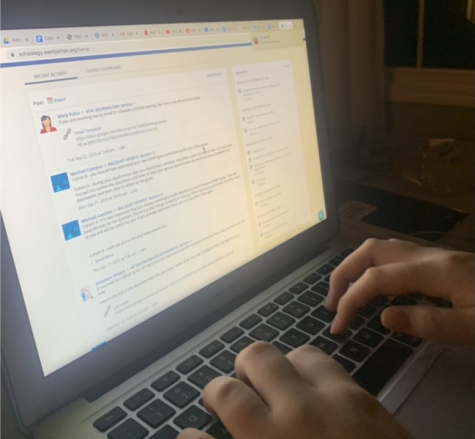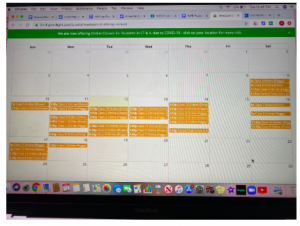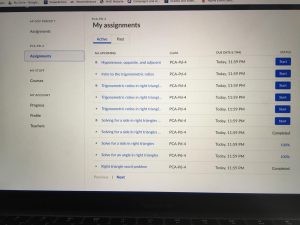Issues with 80-minute periods need to be addressed

With the start of a new school year, we all knew things would be different from how they used to be. One of the major changes that has been implemented are the 80-minute class periods, and while there are benefits to the longer periods, there are also downsides.
The length of the 80-minute periods makes it difficult for students to remain engaged, and forces students who participate in full distance learning to stare at a computer screen for extended periods of time without reasonable breaks.
As a full distance student, the last few weeks have been extremely draining. I wake up early, attend four 80-minute class periods, typically have some type of virtual extracurricular meeting, and then do a few hours of homework. This in total adds up to about 10-14 hours a day of staring at a computer screen. Not only can this screen time take a toll on physical health, but it can also impact a person’s mental health.
Because I opted to do full distance learning, I am naturally exposed to more screen time a week than my peers. However, they are also spending countless hours each day staring at their screens. While this is an issue, there are unfortunately limited solutions that Staples can implement due to the current circumstances and the necessity for virtual learning.
However, there is room to adjust class periods in a way that makes virtual learning as tolerable and healthy as possible. Because the periods are 80 minutes long, students are required to stare at the screen for 80 minutes straight, often without breaks, making it difficult to stay focused and engaged. Additionally, in-school students have to wear a mask for the same period of time, which can become uncomfortable.
Both in-school students as well as online students could benefit from a five to 10 minute mask and screen break during the middle of the period. Or, as an alternative, passing time could be longer than five minutes, allowing students to take a short break to unwind before their next class, this time could come out of flex time.
Naturally, when a schedule change such as this takes place, it requires administration and teachers to reevaluate what an appropriate and engaging class structure would look like for the altered class length. Which is why I believe it is important to consider the new factors at play resulting from this schedule and the hybrid model.
As a student, I can say that class is usually more engaging when there are diversified activities and high levels of participation. Now, there are even further restrictions on activities like this due to the limits of social distancing and virtual learning. Performing a task for 80 minutes straight can become very tedious, so I recommend that teachers attempt to diversify the type and length of activities in the classroom as much as possible.
Additionally, it would be beneficial for teachers to begin incorporating less tech-related learning activities, especially for homework. Rather than assigning reading on an online textbook, students could be asked to take handwritten notes or complete a written worksheet — anything to limit further screen time. Teachers could also attempt to further incorporate participation during class time, especially for virtual learners. Over the course of the last couple of weeks, I have noticed that virtual learners, especially concerning participation, are often a second thought compared to in-school students, as would be expected.
While it is understandable that teachers and students have yet to fully adjust to 80 minute periods, I believe that small changes like more mask and screen breaks, as well as more tech-free learning strategies, could be extremely beneficial for students.
I credit the administration and teachers with the relatively smooth transition back to school, as well as all of the resources offered to students at this time. However, the consideration of these small changes by individual teachers and administration as a whole could gradually bring about more positive improvements, while we as a Staples community continue to navigate how to most effectively educate and learn during this unprecedented time.

Breaking News Editor Tierney Kugel ’22 has a strong passion towards her lifestyle choice, and better yet, loves to write about it. As a vegetarian, she...


















































